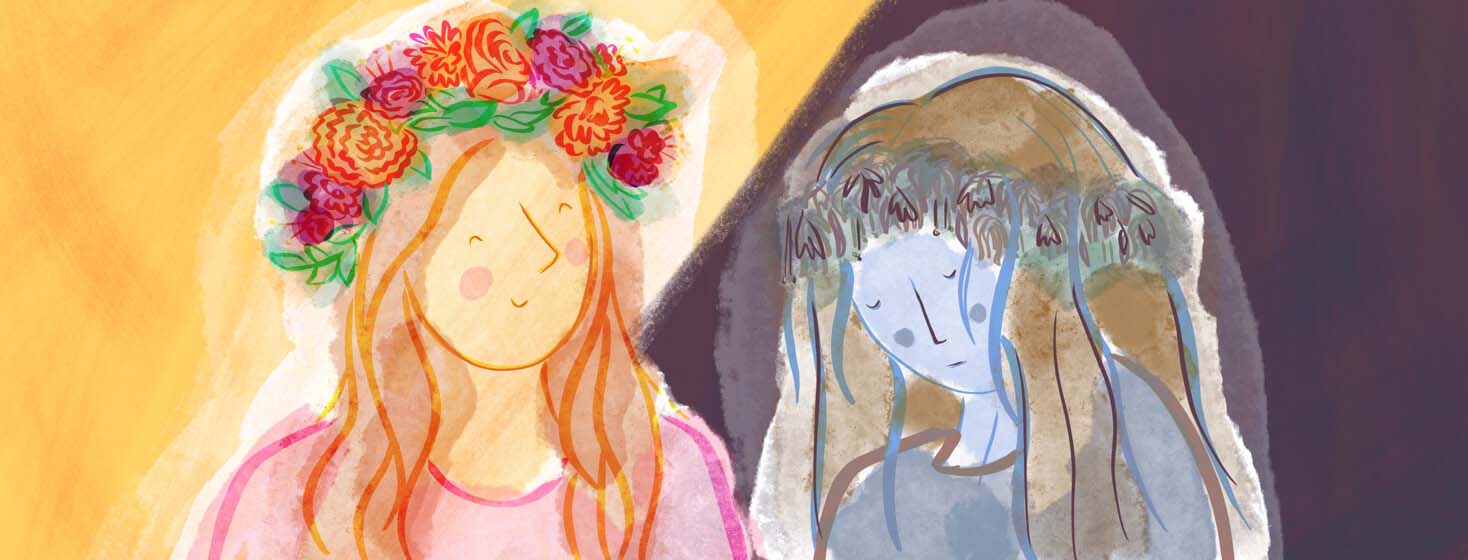What Funerals Tell Me About Chronic Illness
Do you think it’s appropriate for kids to attend funerals? Many of my relatives don’t think it is. They think death is frightening and confusing for children. Their response is usually something like: “I want the kids to remember Grandpa the way he used to be.”
You know, the Grandpa whose big hugs could make them squeal with delight. The Grandpa who would take them to the park, or the zoo, or the ice cream shop. Grandpa with the big smile and the big laugh. Not sick, frail Grandpa.
Weakness and infirmity don't have to be threats
Few funerals will display pictures of us near the very end of our life. These are lesser, more displeasing versions. The versions friends and family (and certainly children, we assume) would prefer to forget. Better to keep the good memories intact, we say.
But what does that say? What does it mean to remember someone “fondly,” to prioritize the “before” memories? Before what? Before the disease. Before the decline, the frailty and infirmity.
For me, the underlying message is that the version of someone most worth remembering is the most abled, competent version. It’s the healthy, vivacious, energetic version. That’s when we’re most alive, right? When we’re most us. Weakness and infirmity are threats to our person. They contaminate our true character. They might just pollute who we really are.
The further the physical decline, the further you are from your true “you-ness,” it seems.
What does this mean when you have a chronic illness?
For someone who lives with chronic illness, it’s easy to see the parallels. It makes me wonder: “do you stop being a valuable version of yourself when you’re sick?” And if that’s true, what does that mean if you’re sick all the time?
What if sickness, dependence, and weakness are not brief epilogues in the story of your life? What if they’re a theme? Does your life end after the prologue? Are you some sort of half-alive, secondary character in your own story? And when did the main character die and get replaced with this half-version?
In a world that values productivity and vitality and ableness as the truest versions of ourselves, it’s relevant to ask how chronic illness can be life-affirming. I, of course, choose to embrace a different narrative, with a very different definition of dignity, worthiness, and importance, but I don’t see this narrative reflected in society.
Grandpa may have kept his vim and vigor well into his 80s, but if you’re 40 and it’s hard to get out of bed, is your story already over? I argue that it isn’t.
Sickness is not the whole plot
Even if it is the main theme. Our protagonist is fully themself on every page, in every paragraph. Being fatigued or weak doesn’t mean being less alive, even if it does mean having less energy. You are always 100% “you.”
How could it be any other way? This is important for Grandpa and for us, but for so many other people too. It’s important for the mom going through chemo, the colleague in hospice, the brother in a nursing home, or anyone else whose body will fail them (and friends, that’s everyone).
Rather than being sad that I may have more chapters of decline to live out than others, on my more optimistic days, I choose to see this as an opportunity.
After all, who better than the chronically ill patient to author a story of value without vim? Who better to puzzle over the parables and allegory, to craft the plot, to imagine the characters? Who better than us, who may have extra time to live through struggle, to find the meaning in conflict?
Every story is valuable, no matter the theme. Every chapter is just as important as the last, and sick characters aren’t just for poorly written epilogues. We are all fully alive, fully us, fully important, right until the end.

Join the conversation